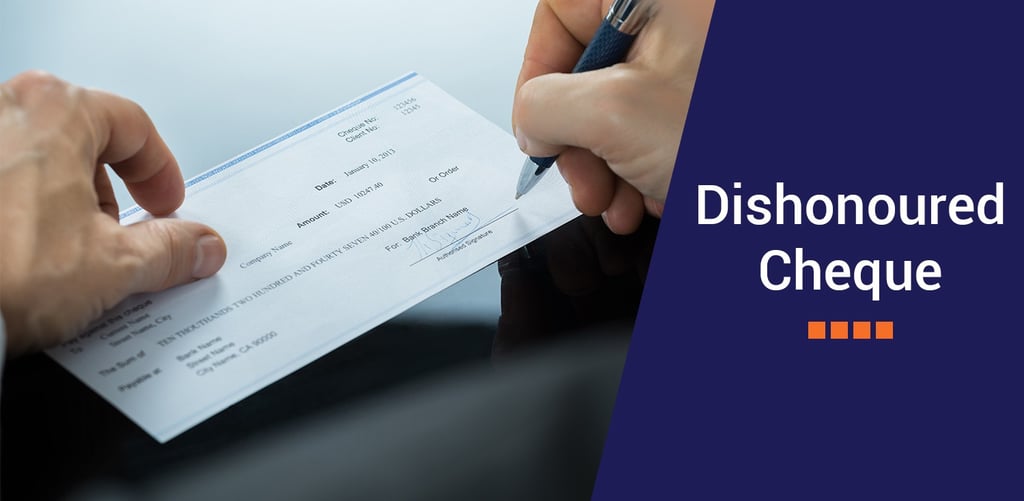Dishonoured Cheques: Legal Implications & Actions
A cheque bounce occurs when a cheque is dishonored by the bank due to reasons such as insufficient funds, mismatched signatures, or account closure. In India, this is addressed under Section 138 of the Negotiable Instruments Act, 1881, which deems it a criminal offense.
Upon dishonor, the payee must issue a written notice to the drawer within 30 days, demanding payment. If the drawer fails to make the payment within 15 days of receiving the notice, the payee has the right to file a complaint in the appropriate court within the next 30 days.
Penalties for cheque bounce can include imprisonment for up to two years, a fine up to twice the amount of the cheque, or both. Additionally, the payee may pursue civil remedies to recover the due amount.
It's essential for individuals and businesses to understand the legal implications of cheque bounce cases and to take prompt action to protect their financial interests.
Common Reasons for Cheque Dishonour
Insufficient account balance
Signature mismatch or missing signature
Post-dated cheque presented early
Stale cheque (presented after 3 months of issue date)
Alterations or overwriting on the cheque
Account closed or frozen by the bank
Understanding these reasons helps in preventing unintentional cheque bounce situations.
Legal Procedure After Cheque Bounce
If a cheque is returned unpaid, the law prescribes a specific process:
Bank Return Memo – The bank issues a memo stating the reason for dishonour.
Legal Notice – The payee must send a written notice to the drawer within 30 days of receiving the memo, demanding the payment.
Waiting Period – The drawer gets 15 days from the date of receiving the notice to make the payment.
Filing of Complaint – If payment is not made, the payee may file a complaint before a Judicial Magistrate within 30 days after the 15-day period expires.
Penalties and Punishments
The consequences under Section 138 can be strict, including:
Imprisonment up to 2 years
Fine up to twice the cheque amount
Or both, depending on the court’s decision
Along with criminal proceedings, the payee can also file a civil suit for recovery of the amount with interest and damages.
Jurisdiction and Court Proceedings
The complaint can be filed where the payee’s bank is located.
The court will issue summons, record evidence, and conduct trial.
If convicted, the court can order compensation to the complainant in addition to punishment.
Defences Available to the Drawer
The drawer (accused) can defend themselves if:
The cheque was issued as security and not for payment
The amount was already paid before presentation
There was no legally enforceable debt or liability
The complaint was not filed within the legal timelines
These defences are considered during trial and must be supported with evidence.
Preventive Measures
Always ensure sufficient balance before issuing a cheque
Avoid overwriting or corrections
Regularly reconcile issued and cleared cheques
Use digital payment modes for better tracking and proof
Conclusion
Dishonour of cheques can lead to serious criminal and civil consequences. Both individuals and businesses should handle cheques responsibly and act promptly when dishonour occurs. Understanding the legal framework helps protect financial interests and maintain business credibility.


Services
Expert legal advice across various practice areas - Civil, Criminal, Divorce and Matrimonial, Consumer and Corporate laws, Bail Matters, Property Contract Disputes, Insurance claim disputes, cyber Crime cases, Cheque bounce, Family Divisions, Arbitration.
Quick Links
© 2025. All rights reserved.
Advocate Harshit SACHAR
2817, 1st Floor , Gurdev Nagar, Ludhiana -141001
